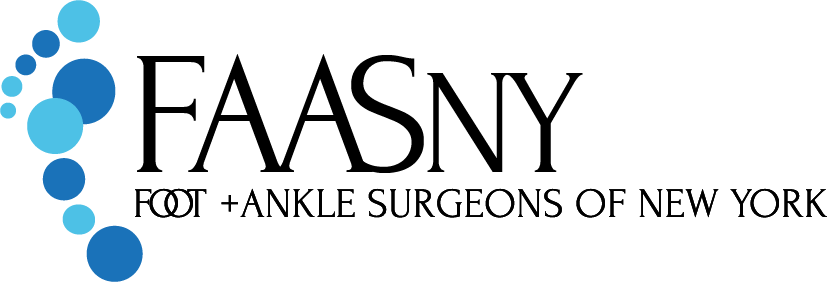
The joint where your big toe and foot meet is referred to as the metatarsophalangeal joint. A bunion is a bony bump that forms on that joint, as your big toe will start to point in the direction of your other toes. A bunion’s growth is gradual and can oftentimes move to the top of the neighboring toe as it progresses. Other than the obvious bump on the joint, symptoms may include pain, swollenness, or redness. In some cases, the skin covering the bunion becomes hardened or a callus may even form. A bunion may make it difficult to move your toes, especially your big toe. If you or someone you know has a bunion, schedule a visit with our podiatrist in Nassau County, NY. At Foot and Ankle Surgeons of New York, we can help treat your pesky bunions and give you tips on how to prevent them from developing in the future.
What are the causes and complications of a bunion?
Although the exact causes of bunions remain unknown, there are a few factors that may influence its development, including:
- Genetics.
- Injuries to the foot.
- Birth deformities.
- Improper fitting shoes.
- Arthritis.
Bunions usually aren’t too problematic. However, some possible complications may arise if you do not get your bunion surgically corrected, such as:
- Bursitis – When your bursae (which are tiny fluid-filled pads) become inflamed. This can cause pain in that specified area.
- Hammertoe – Your neighboring toe may begin to develop an abnormal bend, causing pain and pressure.
- Metatarsalgia – The ball of your foot may become inflamed, leading to pain.
If you find that you are suffering from the complications of a bunion, contact the best podiatrist in Nassau County, NY for assistance.
How can you prevent a bunion?
While bunion development is not what we are thinking about regularly, taking care of your feet sooner rather than later can pay dividends in the future. However, not all young adults are worried about their future-selves taking a trip to the best podiatrist in Nassau County, NY. With that being said, here are a few ways you can help prevent the condition in the later stages of your life:
- Keep track of your foot shape, especially if bunions are genetic for your family.
- Exercise your foot! Try to pick up small objects, such as a pencil or pen, with your toes.
- Wear proper shoes. If your shoes are too tight, they are going to pinch your toes together, which is bad for the development of bunions. Wearing high heels or pointed-toed shoes should be avoided or worn in moderation, as this can also lead to the development of bunions.
At Foot and Ankle Surgeons of New York, the best podiatrist in Nassau County, NY is dedicated to being the best at treating your needs. Do you and your bunions both a favor and schedule an appointment with us today!


